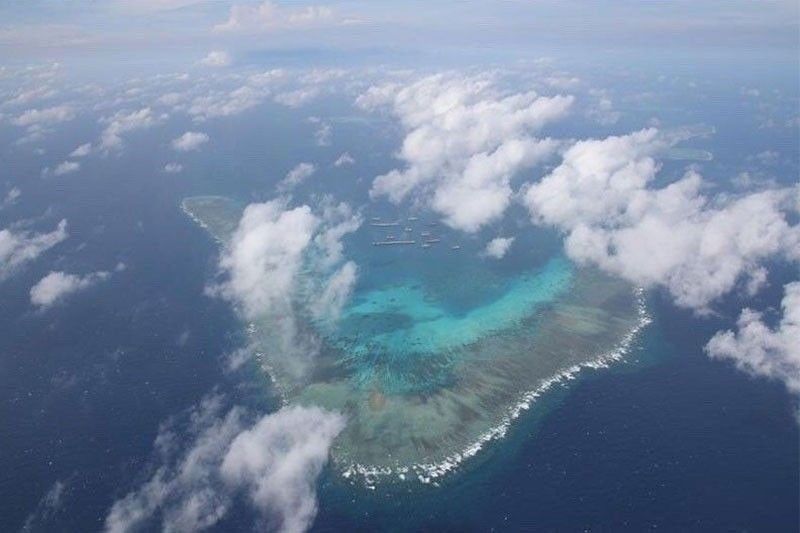Pro-China 'political elite' in the Philippines enables Chinese aggression in WPS — expert

MANILA, Philippines — Efforts of the “political elite” in the Philippines to gain greater influence with the Chinese government have contributed to the apparent failure of bilateral talks to deter Chinese aggression in the West Philippine Sea, a political analyst said.
Political scientist Cleve Arguelles said this is most recently illustrated in China's water cannon attack on members of the Philippine Coast Guard less than a month after former President Rodrigo Duterte visited Chinese President Xi Jin Ping — a meeting which current President Ferdinand "Bongbong" Marcos Jr. said he was aware of.
Duterte’s fly-by-night visit to the Chinese leader “is just the latest among a series of actions that he took that continues to undermine our national interests in securing our territories and EEZ in the West Philippine Sea,” Arguelles said.
“I see it as a continuation of Duterte’s pivot to China policy in which we heed the call of Xi and the Chinese government to engage in more bilateral talks directly with them rather than bring in the rest of the international community in the conversation,” Arguelles said.
Since taking office in 2022, Marcos has strayed from the China-friendly foreign policy pursued by his predecessor and insisted on strengthening ties with the United States.
Marcos, however, has also said that Duterte’s unannounced visit to the Chinese president did not and should not require his permission.
The Senate, which is dominated by Marcos' allies, has filed several measures seeking to condemn and end Chinese harassment of Filipino fishermen in the disputed waters.
One Senate resolution (PSR 707) authored by Senate President Juan Miguel Zubiri seeks to cut bilateral talks between Manila and Beijing.
“As a middle power, the Philippines is not well-placed to benefit from bilateral talks with an aggressive superpower like China. It means we’re unlikely to get favorable responses and our claims will remain underrecognized,” Arguelles said.
Bilateral talks between the Philippines and China would also mostly consist of Beijing insisting on “their economic and military might than submit to international norms and law in resolving issues,” the political science expert said, making country-to-country negotiations more favorable to the Chinese government.
‘Bigger threat’ posted by PH elite
Actions by members of the political elite like Duterte who continue to weaken the country’s territorial claims in its maritime row with China “is a far bigger threat to our national security than China itself,” Arguelles said.
“Duterte’s and his allies’ attempts to appease Xi by setting aside the landmark Arbitral Ruling and withdrawing from international efforts to strengthen rules-based international order didn’t make the challenge to secure our waters easier,” Arguelles added.
Ongoing reclamation projects in Manila Bay also have project ties with a Chinese company blacklisted for helping Beijing build infrastructure and militarize artificial islands in the South China Sea.
In 2020, Duterte insisted on keeping business ties with Chinese firms that Washington had blacklisted, asserting through his spokesperson that pursuing projects with Chinese firms is in the country’s "national interest."
Shrinking diplomatic ties
Meanwhile, Rep. Rufus Rodriguez (Cagayan de Oro, 2nd District) said that the continued harassment of Filipino vessels in the West Philippine Sea should lead to the “shrinking” of diplomatic ties between the two countries.
Rodriguez called on Marcos to “downgrade” the Philippine embassy in Beijing to signal the country’s protest and condemnation of incidents of Chinese harassment of Filipinos.
Downgrading an embassy in a country means that the office would have reduced functions and also send a message of less-than-friendly diplomatic relations.
Marcos “should now firmly address these continuous violations of our sovereignty rights over the West Philippine Sea,” Rodriguez said.
Without naming names, the lawmaker also took a jab at the Philippines’ ambassador to China, Jaime FlorCruz, who he implied was not acting on the issue.
“The President should also order our unusually quiet and inactive ambassador there to return to Manila and to replace him with a lower-level diplomatic officer,” he said.
After Manila accused Beijing's coast guard of firing water cannon at its vessels in the disputed sea, China said on Sunday it had taken "necessary controls" against Philippines boats that had "illegally" entered its waters.
The Philippines’ allies such as the US, Britain, Canada, Japan and Australia have also issued statements condemning the use of water cannons on the Philippine Coast Guard.
- Latest
- Trending































